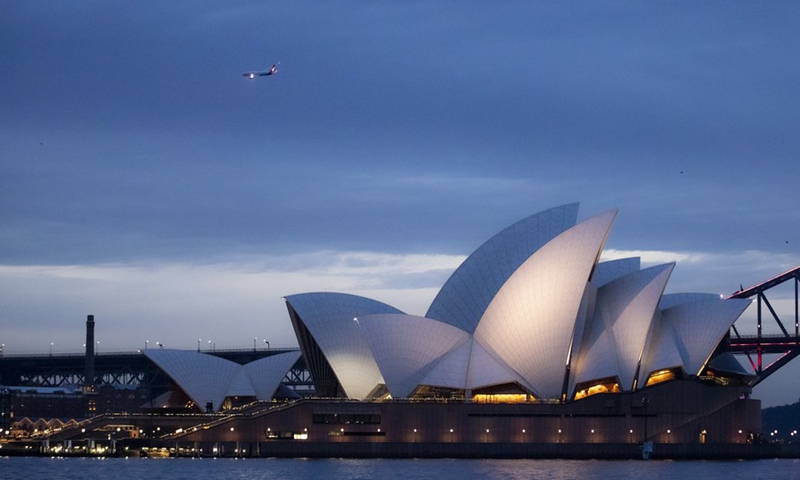MPs’ Taiwan visit brings embarrassment, test to Australian government

A cross-party delegation of six Australian lawmakers started their four-day visit to the island of Taiwan on Monday. At this critical juncture when China and Australia are endeavoring to improve their strained ties, the provocative behavior of Australian lawmakers is a test for Australian Prime Minister Anthony Albanese.
Looking back over the past three years, China-Australia relations have transitioned from a frozen winter to a warm spring, although each step has come with its ups and downs. China and Australia held a high-level dialogue earlier this month. The Australian government has recommenced the visa process for Chinese group travelers. China has dropped anti-dumping tariffs on Australian barley imports. Albanese will also reportedly pay a visit to China later this year. These series of positive signals are a result of the bottoming out of bilateral relations after being damaged by the previous Morrison government.
Currently, the mutual trust between the two countries is still somewhat fragile, and the thawing of relations without trust can hardly be sustained. If China and Australia join hands, the improvement of ties is foreseeable, but if one side intentionally obstructs the process, it may add hurdles to this process.
By playing the Taiwan card, these MPs aim to create troubles in bilateral relations, seek international attention and gain political capital.
Qin Sheng, executive research fellow at the Center for Australia, New Zealand and South Pacific Studies, Chinese Academy of Social Sciences, told the Global Times that Taiwan could only get a rubber cheque from these MPs. Although Taiwan said that the visit demonstrates Australia's support for the island as well as its contribution to peace and stability in the Indo-Pacific region, this rhetoric does not change anything.
"The Taiwan visit will only bring embarrassment to the Albanese government, because it could disrupt its configuration of China policy. Since Albanese took office, his China policy has been somewhat consistent without many twists and turns. But there are still unresolved issues between China and Australia, such as the wine dispute. China is unlikely to discuss this issue with Australia against the backdrop of Australian MPs' Taiwan visit," said Qin.
Qin added that this shows that Albanese's China policy could be jeopardized by party politics to some extent. This makes it hard for Albanese to make a stance toward this matter - he does not want to displease these politicians in his country, but he does not want their behavior to impede the positive trend of China-Australia relations either said Qin.
Chen Hong, director of the Australian Studies Centre of East China Normal University, believes that the visit to Taiwan by these MPs can easily be considered the official behavior of the Australian government by the outside world, which deserves vigilance of the Albanese government.
"If Albanese truly wants to mend ties with China, he should oppose, condemn and then rein in the rogue behavior of MPs visiting Taiwan," Chen told the Global Times.
Any country that engages with China knows that the Taiwan question is about China's sovereignty and territorial integrity and the first red line that must not be crossed. On the Taiwan question, Australia once followed the US closely to provoke China. In 2021, then Australian defense minister said it would be "inconceivable" for Australia not to join the US should Washington take action to defend Taiwan, and Home Affairs Department Secretary Mike Pezzullo warned drums of war are beating. Australia had stepped into the strategic pathology of "sacrificing its own interests in exchange for the interests of the US." With Washington's playbook in hand, Canberra often thought of its China policy on behalf of Washington, but it turned out that Australia's national interests do not equal those of the US. The more dedicated and loyal Canberra is, the more it will be placed at the position of a stepping stone. In matters that concern China's core interests and Australia's future, the Australian government has no room for mistakes.
"Australia must firmly reject being instrumentalized or even weaponized by the US," said Chen, adding that Albanese and his team should continue with their rational China policy.